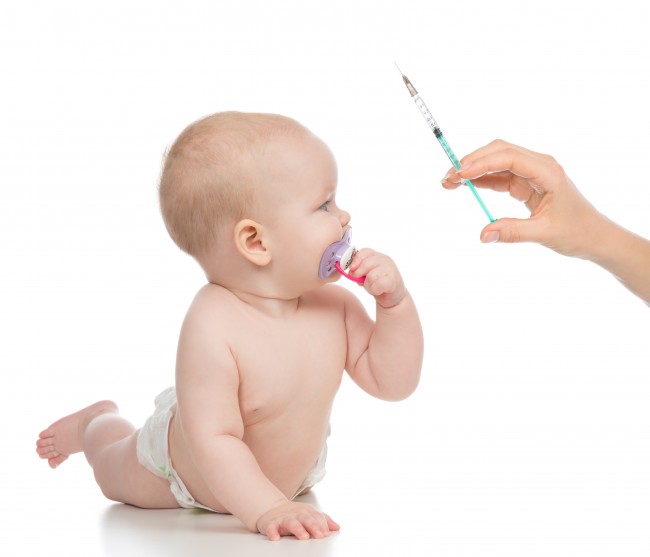A vaccine helps your baby’s blood to produce antibodies to protect him from many future diseases.
How does it work?
When jabbed with an immunisation, your baby is given a weakened form of the disease that will help his body produce antibodies as if it were an actual disease.
Being immunised will ensure that your baby will either not contract that disease at all, or if he does, then he will contract a very mild form of the disease.
How will my baby react?
Your baby’s temperature might spike and he may become irritable. He may also experience slight swelling and reddening where the injection was given.
It is important to note, that if your baby develops a fever of over 38 degrees or has a fit, that you consult your doctor immediately.
What immunisations will my baby be given?
1. Polio
The Polio virus can cause paralysis (which is permanent) and even death
2. Diptheria
Diptheria is a disease, where a membrane forms at the back of the nose and throat, making it difficult to breathe. This disease is rare, but dangerous.
3. Tetanus
Tetanus is an illness which affects your child’s nervous system. As your child grows, he will have booster doses against this illness.
4. HiB
This vaccine protects against haemophilus B meningitis as well as a breathing problem called epiglotitis.
5. Pneumococcal infection
This is a very dangerous illness that can cause pneumonia, meningitis and blood poisoning.
6. Pertussis
Pertussis prevents whopping cough which can be a dangerous and prolonged illness.
7. Measles
Measles is a serious illness that presents itself as a serious rash that is accompanied by a fever. Both can lead to complications.
8. Mumps
Mumps is an illness that causes swelling around the jaw. Contracting mumps is dangerous as it can lead to complications such as deafness and meningitis
9. Rubella
Rubella is commonly known as German Measles. Symptoms are a rash and a sore throat. Rubella is especially dangerous if you are not immune whilst pregnant. If you happen to catch Rubella during the first trimester, your baby could be born with serious defects.
How can you reduce your baby’s pain after immunisation?
It has been found, that sucking can help to reduce pain. Breastfeeding after immunisation or offering your baby a pacifier can help reduce the pain from the injection.
Lara Bestbier
Latest posts by Lara Bestbier (see all)
- Tips to help your toddler develop good eating habits - June 30, 2014
- Colic in newborn babies: Soothing techniques - June 30, 2014
- Your newborn’s reflexes - June 27, 2014






 Saving...
Saving...